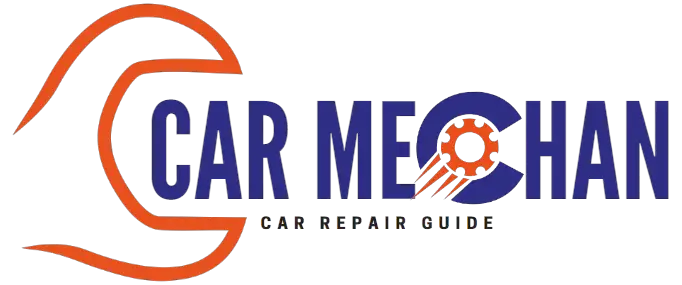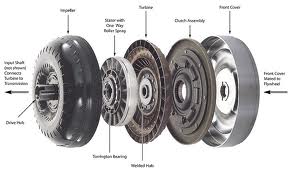Last Updated on February 17, 2023 by Ryan
There have been reports of torque converter issues in Honda CR-Vs from model years 2007 to 2011. The most common symptom is a shuddering feeling when accelerating from a stop. This can be caused by a build-up of debris in the torque converter, and the fix is to replace the part.
In some cases, the transmission may need to be completely rebuilt.
If you’re the owner of a Honda CR-V, you may be having some torque converter issues. The torque converter is responsible for converting the engine’s rotational force (torque) into hydraulic energy, which then powers the transmission. It’s a vital part of your vehicle’s drivetrain, and if it isn’t working properly, it can cause all sorts of problems.
One common issue with the torque converter is that it can fail to engage properly. This can happen when the fluid level in the transmission is low, or if there’s something blocking the passage of fluid between the torque converter and the transmission. If your torque converter isn’t engaging properly, it can cause your vehicle to jerk or stall when you try to accelerate from a stop.
Another common issue is that the torque converter can start to slip. This happens when there’s too much wear on the clutch plates inside the converter. Slipping can cause your engine to rev up without actually increasing speed, and it can also lead to decreased fuel economy.
If you’re having any issues with your torque converter, it’s important to have it checked out by a qualified mechanic as soon as possible. These problems can often be fixed with a simple repair or adjustment, but if they’re left unchecked they could lead to more serious damage down the road.
Fix the Shudder in my automatic transmission on my Honda CRV
What are the Symptoms of a Failing Torque Converter?
When a torque converter begins to fail, there are several symptoms that may become apparent. The most common symptom is a transmission that slips when shifting gears. This can happen because the fluid inside the torque converter is not being properly circulated.
As a result, the transmission may not be able to engage properly, causing it to slip. Another common symptom of a failing torque converter is a delay in acceleration. This occurs because the torque converter is not able to multiply engine power as effectively, resulting in a slower response when the accelerator is pressed.
Additionally, a failing torque converter may cause the transmission to overheat. This happens because the fluid inside the torque converter is not being cooled properly, causing it to break down and degrade over time. Ultimately, if left unchecked, a failing torque converter can lead to complete failure of the transmission system.
How Much Does It Cost to Replace a Torque Converter in a Honda Cr-V?
torque converter in a Honda CR-V would cost you $1000 to replace. The average cost for a Honda CR-V torque converter replacement is between $988 and $1044.
What are the Most Common Problems With the Honda Cr-V?
The Honda CR-V is a reliable and affordable compact SUV, but like all vehicles, it has its share of common problems. The most common issues reported by CR-V owners include transmission problems, engine issues and suspension problems.
Transmission Problems:
The Honda CR-V’s automatic transmission is prone to slipping, especially when the vehicle is cold. This can be caused by low fluid levels or a faulty solenoid. If your CR-V is experiencing transmission slipping, it’s best to take it to a mechanic for diagnosis and repair.
Engine Issues:
Some Honda CR-V owners have reported engine oil leaks. This can be caused by an improperly installed oil filter or a faulty valve cover gasket.
If you notice an oil leak, take your CR-V to a mechanic so they can fix the problem before it causes extensive damage to your engine.
Another common engine issue with the Honda CR-V is excessive fuel consumption. This can be caused by several factors, including dirty injectors, incorrect spark plugs or ignition timing that’s off.
If you notice your fuel economy dropping suddenly, take your vehicle in for service so a mechanic can diagnose and fix the problem.
Suspension Problems:
The Honda CR-V’s suspension system is known to be noisy and squeak when going over bumps.
What Year Did Honda Cr-V Have Transmission Problems?
The National Highway Traffic Safety Administration (NHTSA) has received reports of transmission problems with the Honda CR-V. The affected vehicles are from the 2007 and 2008 model years.
According to the reports, the transmission may slip out of gear while driving, or it may not shift into the correct gear.
This can cause the engine to rev up without the vehicle moving forward. In some cases, this has caused drivers to lose control of their vehicle and crash.
Honda is aware of the problem and has issued a recall for affected vehicles.
If you own a 2007 or 2008 Honda CR-V, you should take it to a dealer for repair as soon as possible.

Credit: www.youtube.com
Honda Crv Torque Converter Replacement Cost
If your Honda CRV is starting to have transmission problems, it may be time for a torque converter replacement. This can be a costly repair, but it is one that is often necessary. The average cost of a Honda CRV torque converter replacement is between $2000 and $3000.
This price includes the cost of the parts and labor. If you are experiencing transmission problems, it is always best to take your vehicle to a qualified mechanic or dealership for diagnosis and repair.
Conclusion
If you own a Honda CRV, you may have experienced torque converter issues. The torque converter is what allows the engine to transfer power to the wheels. If it isn’t working properly, your vehicle may not be able to move.
There are several symptoms of a faulty torque converter, including: the vehicle lurching forward when stopped, the engine revving without moving the vehicle, and the transmission slipping. If you’re experiencing any of these issues, it’s important to take your CRV to a mechanic as soon as possible so they can diagnose and fix the problem.



